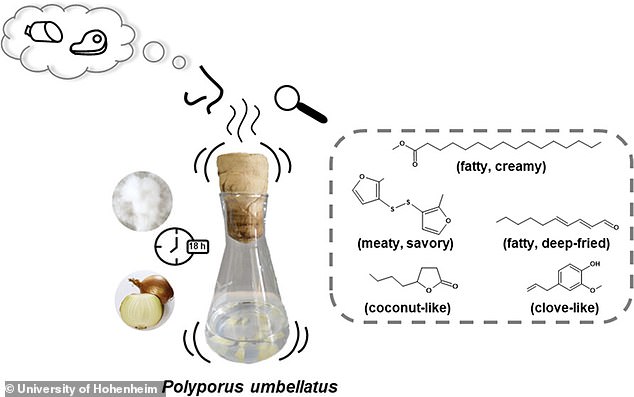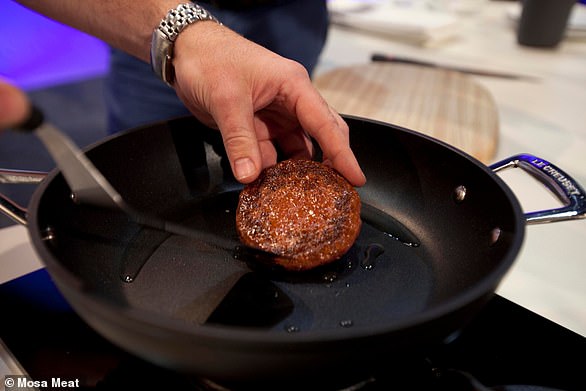The secret to making plant-based meats taste ‘meatier’? Fermented onions, say scientists
>
- Vegetable meat often looks like real meat, but lacks that really meaty taste
- Scientists claim that adding fermented onions can evoke that sought-after aroma
From beetroot burgers to vegan ‘ribs’: imitation meat is becoming more popular by the day.
These plant-based alternatives often look like the real deal, but most of them still lack that really meaty flavor after cooking.
Now scientists at the University of Hohenheim think they have the solution, even if it doesn’t sound particularly appealing.
They claim that adding fermented onions, chives, or leeks to plant-based meats can evoke that sought-after aroma.
“These onion ferments could one day be used as a natural flavoring agent in various plant-based meat alternatives,” the researchers said.
From beetroot burgers to vegan ‘ribs’: imitation meat is becoming more popular by the day. These plant-based alternatives often look like the real thing, but most of them still lack that really meaty taste after cooking (stock image)
Many plant-based meat companies use synthetic additives to mimic the flavors and aromas of meat.
However, Because these flavorings are made through synthetic processes, many countries do not allow food manufacturers to label them as “natural.”
“To access a plant-based, ‘natural’ meat flavoring, the flavorings would have to be physically extracted from plants or biochemically generated using enzymes, bacteria or fungi,” the team explained.
In their new study, published in The Journal of Agricultural and Food Chemistrythe researchers wanted to create a meaty taste using natural ingredients and processes.
The team tested a range of food items, including chives, ginger, leeks, ramons, red peppers and yellow onions.
These were fermented using different mold species before the aromas were tested using chromatography-mass spectrometry.
The results showed that only foods from the Allium family—chives, leeks, and yellow onions—created meaty flavors.

The strongest smelling sample came from an 18-hour fermentation of onions using the fungus Polyporus umbellatus
In particular, the strongest odor sample was found to come from an 18-hour fermentation of onions using the fungus Polyporus umbellatus.
“(This) produced a greasy and meaty smell similar to liverwurst,” the researchers said.
Digging deeper, the team found that the fermented onion contained many of the same odor chemicals found in real meat.
For example, one chemical identified was bis(2-methyl-3-furyl)disulfide, a potent chemical found in meaty and savory foods.
The investigation will come soon after Experts from the University of Oxford revealed that eating just 100 grams of meat a day – less than a single burger – causes four times more greenhouse gas emissions than a vegan diet.
The researchers now want to see rapid policy action from government and organizations to bring about “dietary shifts away from animal foods.”
Previous studies have suggested that there are personal health benefits associated with cutting out a meat diet, including a reduced risk of heart disease.

